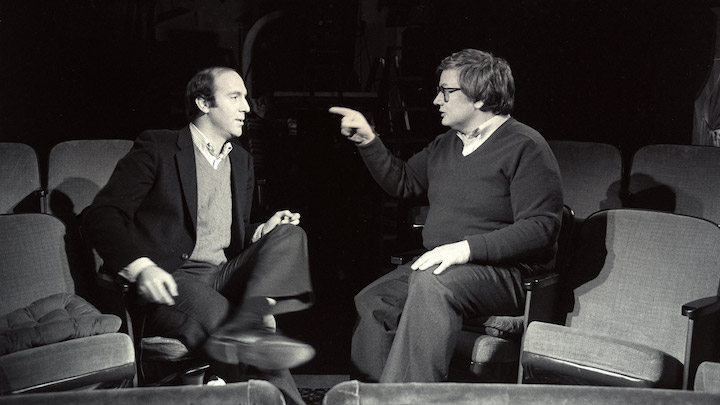Showing at this year’s IFI Stranger than Fiction festival, Life Itself was one of those documentaries that all fans of film want to see but in some ways dread seeing. There is a wonderful feeling in looking at film clips, discussions with great critics and directors all within the screen of your beloved cinema. But there is sadness there too. We know why these films usually come about. In memoriam is thesombre feeling. Perhaps what made the screening of Life Itself a little different was the subject. Roger Ebert was one of the great film critics. The Pulitzer Prize-winner was the film critic for the Chicago Sun-Times for over 40 years. It was sad to see him pass, but there is also a joy in knowing we have so much of his writing available now.
Life Itself, as directed by Steve James (Hoop Dreams, The Interrupters), is an intimate film. It is also a fairly straightforward telling of a life story, beginning at an early age, but is punctuated by scenes with Ebert over the last year of his life, a lot of time whilst was hospitalised. This was a brave decision by Ebert, but the right one. Whilst there is initial shock at his appearance in hospital, it is noticeable that he seems quite happy (most of the time). After he lost his speaking voice, his writing voice online became ever stronger. Reviews and articles poured out to leave a remarkable body of work behind. He seems comfortable with James, a director who credits Ebert to a large degree with the success he has had. There are other young filmmakers in the documentary who have similar feelings, and it is hard not to be impressed by the efforts Ebert put in to help them in their careers at an early stage.
But this closeness to filmmakers brings its own problems. It is briefly mentioned that Ebert was close friends with some filmmakers and there seems to be a question mark over impartiality here. It doesn’t go into it in real detail alas, but it is a question that all critics should be aware of. It is beyond doubt that some of the filmmakers who appear in Life Itself are huge fans of Ebert’s work. To hear Werner Herzog and, in particular, a teary Martin Scorsese speak so lovingly about him is very moving indeed.
But the film does not shy away from the darker side of Ebert. His professional rivalry and relationship with Gene Siskel is explored and he does not come out of it well for the most part. There is jealousy mixed with bitterness (mostly but not exclusively on Ebert’s part). It also shows some b-roll footage from introductions to some of their shows that are very funny but also quite cutting. You sense there is respect between them but also wariness. His letter to Gene Siskel’s wife after her husband’s death will have even the toughest amongst us fighting back tears.
Life Itself does nothing new with the form itself. It utilizes a standard script to talk about a fine man. But this is less a critical analysis and more of a tribute. To be quite honest, that is more than enough. It is a fitting and beautiful testimonial to a man that was a colossus in film criticism. His work will live on forever in books, onscreen and online and we will all collectively devour it for years to come. His is a long shadow that is cast over ever review that is written. Go online and pick areview at random (his final one, To the Wonder is fantastically poignant). He will make you want to be a better writer and critic. Perhaps this is his greatest legacy.

